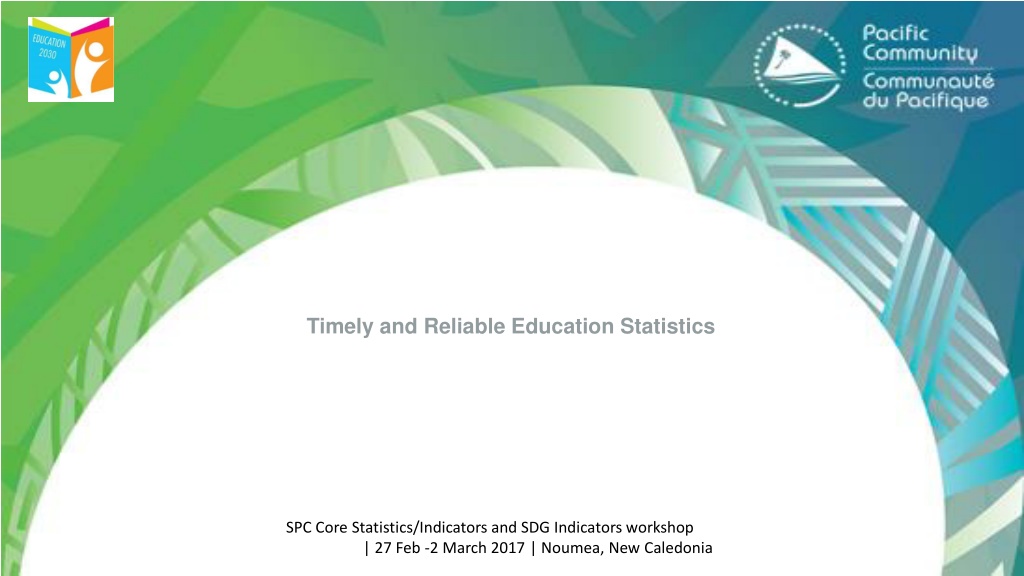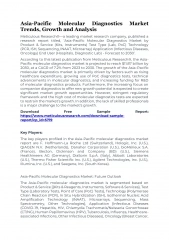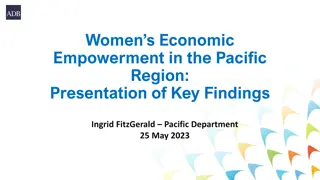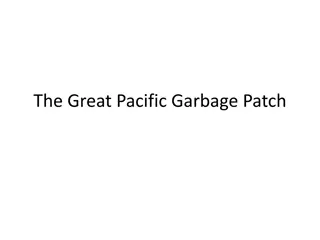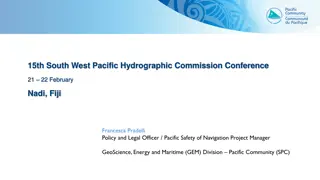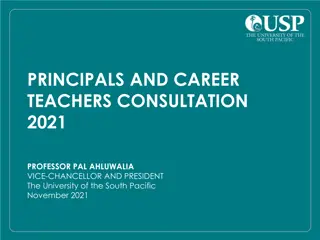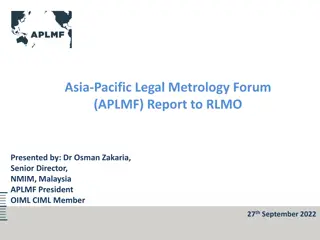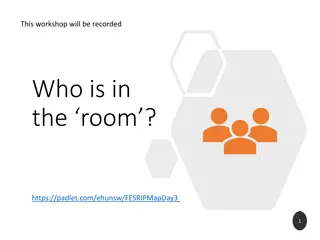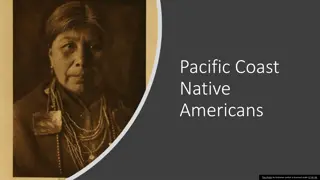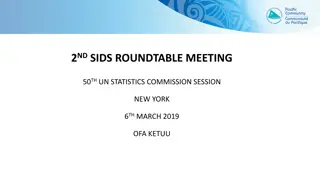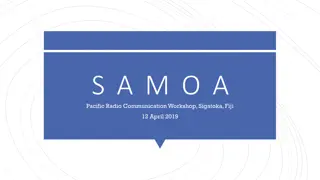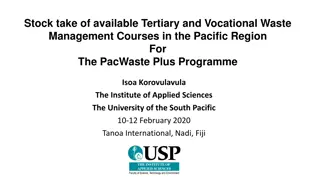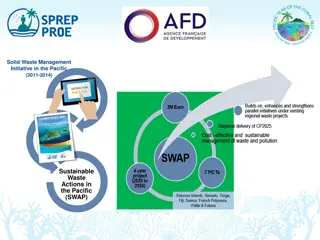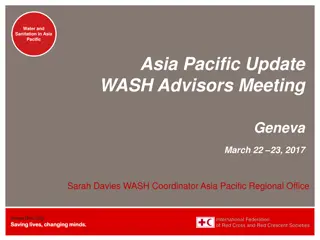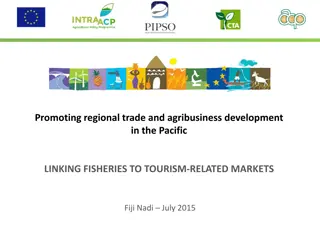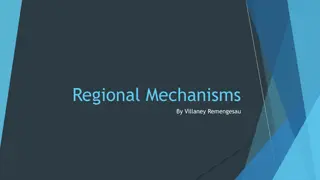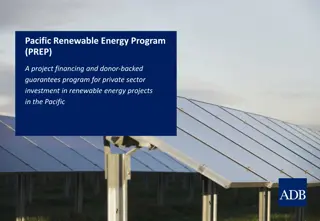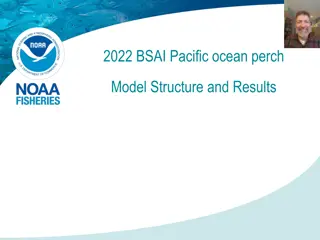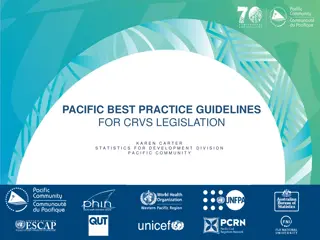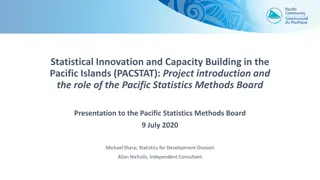Pacific Education Development Framework Workshop Overview
The Pacific Education Development Framework workshop held in Noumea, New Caledonia focused on timely and reliable education statistics, data challenges, and SDG indicators. The event emphasized the need to utilize indicators at regional, national, and subnational levels to address data challenges in education. Key themes included the Pacific Learner, teaching profession quality, student outcomes, learning pathways, and the importance of well-trained educators. The workshop aimed to create partnerships in education and enhance the quality and relevance of learning opportunities for all learners in the Pacific region.
Download Presentation

Please find below an Image/Link to download the presentation.
The content on the website is provided AS IS for your information and personal use only. It may not be sold, licensed, or shared on other websites without obtaining consent from the author. Download presentation by click this link. If you encounter any issues during the download, it is possible that the publisher has removed the file from their server.
E N D
Presentation Transcript
Timely and Reliable Education Statistics SPC Core Statistics/Indicators and SDG Indicators workshop | 27 Feb -2 March 2017 | Noumea, New Caledonia
Data Challenges Data Challenges Need to use indicators at regional, national and subnational levels SDG PEDF NAP SPC Core Statisics/Indicators and SDG Indicators workshop | 27 Feb-2 March| Noumea, New Caledonia
Pacific Pacific Education Development Framework Education Development Framework A framework for creating partnership in Education in the Pacific PEDF Strategic Goals: SPC Core Statisics/Indicators and SDG Indicators workshop | 27 Feb-2 March| Noumea, New Caledonia
The Pacific Learner The Teaching Profession Well trained, qualified and certified teachers and school leaders who are current in their knowledge and practice. They are engaged, effective and committed to their learners Student Outcomes and Wellbeing That all learners achieve the knowledge and skills need, underpinned by social values and behaviour, for the livelihoods they want and to contribute to their communities and nation building. Learning Pathways All learners have access to multiple pathways and modalities of learning that allow them to meet their full potential. Quality and Relevance Students can identify and engage with learning opportunities that are meaningful, valued and future focused.
Student Outcomes and Wellbeing Learning Pathways That all learners achieve the knowledge and skills they need, underpinned by social values and behaviour, for the livelihoods they want and to contribute to their communities and nation building. All learners have access to multiple pathways and modalities of learning that allow them to meet their full potential. Goals (1) An enabling policy environment, with appropriate resourcing, for increased schools/providers decision making and flexibility in the delivery of learning. Goals (1) To increase the percentage of learners achieving expected levels of literacy and numeracy at the end of primary and junior secondary education (2) To ensure the most vulnerable students can access and participate fully in a wide range of learning (2) To improve participation rates at all levels but with a focus on ECCE and secondary learners (3) To ensure our youngest learners ([pre-schoolers) are ready to engage in formal pathways (3) To develop and implement programmes that strengthen social dimension skills in young people (4) To ensure the linking of pathways between levels of schooling and beyond. (4) To ensure readiness for the challenges and opportunities of the real world. The Teaching Profession Well trained, qualified and certified teachers and school leaders who are current in their knowledge and practice. They are engaged, effective and committed to their learners Quality and Relevance Goals Students can identify and engage with learning opportunities that are meaningful, valued and future focused. (1) To ensure 100% of teachers in Pacific classrooms are trained, certified teachers who demonstrate competency against teacher professional standards. Goals (2) To ensure that teachers and school leaders are supported in developing new skills and learning of their own to create better outcomes for students (1) To ensure that curriculum and programmes are grown/stem from the land and the Vaka (2) To make learning inclusive of cognitive and non-cognitive development (3) To be responsive and flexible to innovation and change (3) To build the status of the profession and confidence of our parents in their child s teacher and school. (4) Teacher education programmes respond to other goals of PEDF.
Regional Collaboration: Strengthening Education Monitoring in the Pacific Pacific Islands regional organisations and ongoing collaborative efforts in the region The Pacific Islands Forum Secretariat (PIFS) as the region s principal political institution. Pacific Islands Forum Quality Education (EQAP) UNESCO INSTITUTE OF STATISTICS Regional EMIS Facility (SPC) University of South Pacific (USP) The Secretariat of the Pacific Community is a non-political organisation that delivers technical assistance, policy advice, training and research services for the region. SPC (PIFS) The University of the South Pacific (USP), a premier provider of tertiary education in the Pacific region and an international centre of excellence for teaching, research and consulting on all aspects of Pacific life; Leadership Policy directives Training in M&E Regional reporting Dialogue Data Quality Assessment Data Analysis Software Dev Capacity Analysis Training Global reporting Technical advice Education data analysis Production of internationally comparable data Teacher development School Leadership Education Policy, Planning Teachers Learning School Leadership Student Assessment (PILNA) Policy UNESCO Institute of Statistics (UIS), regional efforts to improve education monitoring in the Pacific SPC Core Statisics/Indicators and SDG Indicators workshop | 27 Feb-2 March| Noumea, New Caledonia
Data collection across the Pacific by PIC c SPC Core Statisics/Indicators and SDG Indicators workshop | 27 Feb-2 March| Noumea, New Caledonia
Education Statistics Digest reports SPC Core Statisics/Indicators and SDG Indicators workshop | 27 Feb-2 March| Noumea, New Caledonia
